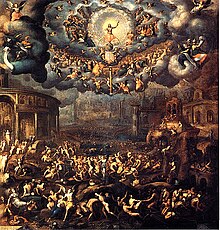Bishop Giles sermon for April 27, 2013
Bishop Giles OFM 4th Sunday after Easter
Video Sermon 4th Sunday after Easter - Bishop Bonaventure, OFM
Fourth Sunday After Easter - Fr. Joseph, OFM
Holy Mass from Our Lady of the Rosary-Fr. Bernard, OFM
Third Order of St. Francis - St. Joseph of Cupertino Fraternity - St. Peter of Alcantara Province. ``Where the Bishop is, there let the multitude of believers be; even as where Jesus is, there is the Catholic Church'' Ignatius of Antioch, 1st c. A.D
| Blessed Luchesius of Poggibonsi, T.O.S.F. | |
|---|---|
 |
|
| The first Franciscan tertiary | |
| Born | unknown Poggibonsi, Tuscany, Italy |
| Died | April 28, 1260 |
| Honored in | Third Order of St. Francis, Roman Catholicism |
| Major shrine | Poggibonsi, Italy |
| Feast | April 28 |
THE ROMAN CATHOLIC CHURCHHer Doctrine and MoralsFourth Sunday after Easter28 April 2013 |
![[Image]](http://friarsminor.org/ss.gif)
The SundaySermon |
THE ROMAN CATHOLIC CHURCHHer Doctrine and MoralsThird Sunday after Easter21 April 2013 |
![[Image]](http://friarsminor.org/ss.gif)
The SundaySermon |

THE ROMAN CATHOLIC CHURCHHer Doctrine and MoralsSecond Sunday after Easter14 April 2013 |
![[Image]](http://friarsminor.org/ss.gif)
The SundaySermon |
| St. Alphonsus in St. Peter's in Rome |
 |
| Alison, Grace, Lucy, Bishop Bonaventure |
THE ROMAN CATHOLIC CHURCHHer Doctrine and MoralsLow Sunday7 April 2013 |
![[Image]](http://friarsminor.org/ss.gif)
The SundaySermon |